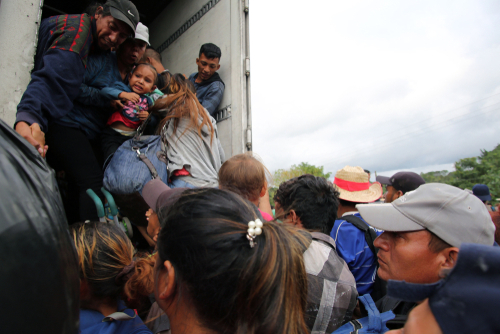
In the sunshine state of California, towns situated on the border are experiencing unprecedented pressures from an ongoing surge in migration. This surge is presenting significant challenges to local resources, infrastructure, and communities, demanding immediate and decisive action.
The influx of individuals crossing the border has swelled to numbers that local facilities weren’t designed to handle. Essential public services, such as emergency healthcare and law enforcement, are being stretched to their limits, placing a strain on budgets and manpower. The overwhelming wave of new arrivals is testing the town’s capacity to maintain order and security.
🚨911 call reveals over 100 Migrants looting a Home Depot in Chicago and attacking staff. This belongs at the top of the news cycle.
— Jason Curtis Anderson (@JCAndersonNYC) February 23, 2024
Furthermore, local education systems find themselves under duress as they grapple with the influx of children needing schooling. Teachers and administrators are faced with crowded classrooms, language barriers, and a lack of funding for requisite expansion. The quality of education, consequently, risks being compromised for both long-term residents and newcomers alike.
Residents are voicing concerns as they witness the character and safety of their communities being reshaped. The rapid demographic changes have some locals feeling overlooked by federal authorities, who they feel have not sufficiently accounted for the direct impact on these towns. Without adequate federal backup, these communities are unsure of how to sustainably manage the escalating situation.
This is what Woke, Leftist, Democrat open border policies are dumping into U.S. cities:
Buses full of illegals.
All all adult men.
And mass released onto the streets.
This bus dropped off in San Diego.
Migrant crime is turning cities into war zones. pic.twitter.com/rbryfoAeMz
— Dapper Detective (@Dapper_Det) February 23, 2024
Economic considerations are also at the forefront of the discussions. With jobs being limited and the competition for them increasing, the pressure on wages and the cost of living is palpable. This economic impact is twofold: it solicits financial anxiety among current residents and fosters an environment where the newcomers may not find the opportunities they seek.
Morally, many recognize the human element inherent in migration and the pursuit of a better life. Yet, this empathy is coupled with the necessity for order, legality, and manageable numbers. It’s a complex balancing act between human compassion and a pragmatic approach to immigration policy that does not disadvantage current citizens.
It is clear that immigration reform is urgently needed to address these challenges, which go beyond just one state’s capacities. Solutions must involve a multi-faceted approach encompassing border security, immigration process reform, and aid for the towns on the frontline of this issue. These solutions need to come from bipartisan support to reflect the urgency and seriousness of the situation.
In conclusion, the narratives coming from border towns in California are not isolated incidents but symptomatic of broader, nationwide challenges. They serve as a clarion call for policymakers to reassess the current stance on immigration and work towards policy that safeguards the interests of all stakeholders involved.









